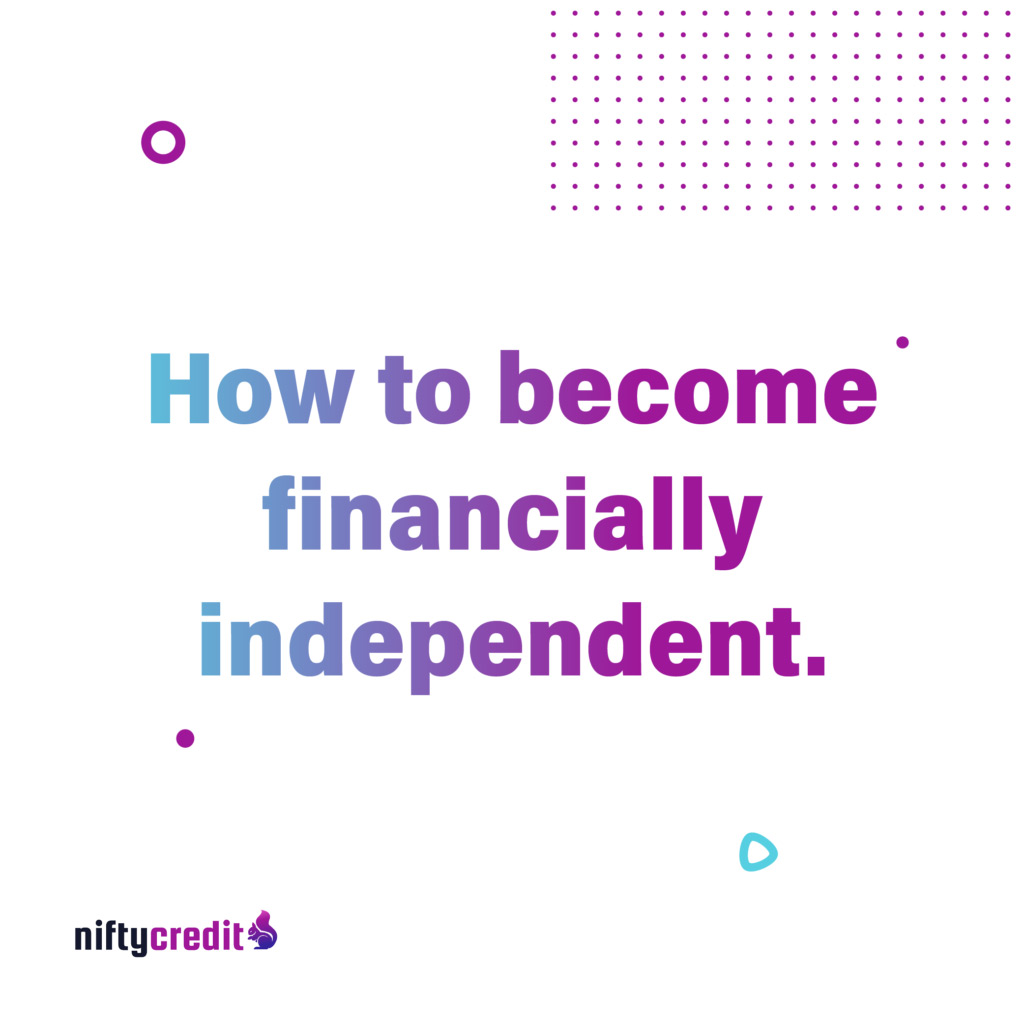
We all want to live a life that is free of financial anxiety. To be able to go through our days without the worry that an emergency cost could ruin us financially, and be free of the paycheck to paycheck lifestyle. What we are imagining is financial independence.
Financial independence is the ability to live comfortably on what you earn and save, without being dragged down by debt or expenses.
Here are some keys steps to achieving financial independence:
Set a Goal
Financial independence is often reliant on savings, and we know we’ve spoken about building up your savings before and you’re probably tired of hearing about it, but it a very big part of financial stability.
However, we know that starting a savings can seem scary. So, before you start, set some time aside to think of financial goals that you want to work towards.
It’s important for visualise these goals, don’t just keep them in your head and risk forgetting about them.
Instead, write them down and keep them somewhere that you would see often. Write them on a note and stick them to your fridge or make them the background of your phone.
If your goals are in plain sight, it will help you to think about ways to accomplish them and prevent you from slacking.
Recognise That Income Is Not Wealth
If you are serious about financial independence, remember that your income and your wealth is not the same thing. It’s a common mistake that most of us make.
Wealth can be easily understood if it is viewed as your net worth. To understand the difference, we need to get a little bit technical. It is commonly defined as the difference between assets and liabilities, which is known as equity. Whereas income is a recurring financial benefit that you receive.
In other words, your overall net worth increases if you can save more than you spend. Which means that you can grow your wealth if you establish a proper proportion between income and your overall expenses.
Remember income is a short-term thing and is only a factor in wealth creation, whereas wealth is likely to last a lifetime.
Amass Money and Invest It
Amassing wealth is not easy, and we don’t want to pretend it is, especially when you have a modest income and trying to survive the high cost-of-living. So start small, put aside a portion of your earnings while also reducing your expenses.
Rather than waiting for a single large sum of money, you can invest a portion of your income in an Income Fund which helps your money grow over the short-term and tax-free retirement plans on a regular basis. Over time this initial small investment, will generate returns that, when added to the initial investment, will amount to a sizable sum.
Create Smarter Safety Nets
People who have had emergency costs pop up can tell you how relieved they were that they set up an emergency fund for themselves. Even though many of us see the benefits of setting up such a fund, many people still remain financially unprepared for emergencies.
The general rule is to have 3 – 6 months’ worth of salary saved up as an emergency fund. Usually this funds actual emergencies such as unemployment situations, medical situations, etc.
Having this in place provides you with the peace of mind of knowing that if a problem were to arise, you have the ability to avoid falling into debt.
Insurance is another type of safety net. By paying monthly premiums we ensure that our financial security is taken care of during emergencies. You can apply for such cover over at NiftyCover.


